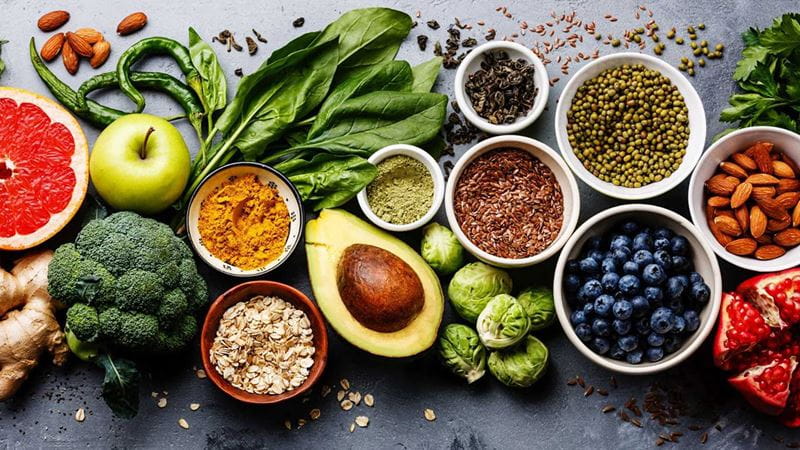Blog article
A companion of resources for menopause and perimenopause

Menopause and perimenopause – what’s the difference?1
Menopause and perimenopause are distinct but closely related stages in a woman's reproductive life. Perimenopause refers to the transition period leading up to menopause, when hormone levels—particularly estrogen and progesterone—begin to fluctuate, resulting in symptoms such as irregular menstrual cycles, hot flashes, and mood changes. This phase can last several years and typically begins in a woman's 40s, though timing varies.
Menopause, by contrast, is defined as the point when a woman has gone twelve consecutive months without a menstrual period, marking the end of fertility. The symptoms experienced during perimenopause often continue into menopause, but menopause itself is a single milestone rather than a process.
Can you prepare for menopause?
The symptoms that come with menopause can feel scary and confusing – but there are ways to find empowerment (and push aside fear!)
Preparing yourself will look different for everyone but as a start can include:
- Regular check-ups: Monitor bone density, cardiovascular health, and hormone levels with your GP.
- Nutrition: A diet rich in omega-3s, lean proteins, and vegetables supports brain and body health2.
- Exercise: Exercise is a renowned must-have for the Menopause tool kit. When it comes to easing symptoms, it is hugely beneficial in supporting changes from bone density to mood, even hot flashes and fatigue4.
- Sleep hygiene: Address good sleep habits as much as you can as disrupted sleep is a common sleep hurdle that comes with menopause3. This can start with baby steps – like not bringing your phone into the bedroom.
Starting to prepare for menopause in your 30s in a way that feels manageable for you may lead to feelings of empowerment – and if anything, and at the very least, will have positive effects on your health long term.
Expanding your support network through new hobbies and support groups is also a great way to help feel less isolated mentally, and exploring ways to manage any anxiety should it pop up is always a good idea – this could include meditation, exercise, or time with friends.
Supportive mind-body resources to save and share
- Looking for a fact sheet? This one is great.
- This article by Dr Louise Newson on how hormones work is a quick 1-minute read, breaking down the influence of hormones on the female body. Knowledge is power!
- These patient stories on the Balance app will remind you: you’re not alone.
- This video with Australian author Kathy Lette for Menopause Alliance Australia is a great watch. Humour is a weapon.
- A drop in estrogen during menopause increases blood fat levels and contributes to a higher risk of heart disease, stroke, and high blood pressure – this is a wonderful resource for your heart.
- There’s a link between hormonal changes and mental health, and we wrote about it here.
- A supportive space that offers evidence-based information and support for individuals who are perimenopausal and menopausal, and extends that support to their families, friends and workplace colleagues.
- If you’re looking for a night in to watch a documentary that discusses all this and more, this one by Davina McCall is busting midlife taboo.
- This podcast showcases stories of heart and resilience – as told by Dr Louise Newson who has been described as the “medic who kickstarted the menopause revolution.”
- Speaking of podcasts, Jean Hailes also have one – and the episodes are bite-sized and easy to understand.
- Jean Hailes is our trusted source for all things menopause this Women’s Health Week and beyond.
A CSIRO-approved lunch – wonderful for heart-health
Tomato & basil mackerel pasta
Serves 2

This super simple pasta dish is from the new Menopause Plan, available to eligible HBF Members as part of the CSIRO Total Wellbeing Diet. Made using cardio-protective mackerel with a kick of chilli – it’s healthy for the heart and the mind (especially if you imagine you’re in Spain while eating it). Eating whole foods and healthy fats like extra virgin olive oil can help maintain a healthy weight and manage blood sugar and cholesterol, which can fluctuate during menopause.
Ingredients
- Wholemeal pasta, uncooked, 1 cup(s), e.g. penne
- Cherry tomatoes, 1 cup(s) (regular cherry tomatoes), halved
- Red onion, ½ small, sliced
- Extra virgin olive oil, garlic infused, 2 teaspoon(s)
- Pepper, any type, ground, 2 pinch(es)
- Mackerel fillets, canned, in brine, 1 125g can(s) (drained)
- Basil, 1 cup(s)
- Cheddar cheese, reduced-fat (15% fat), 100 g, 3/4 cup shredded
- Lemon, ½ lemon(s), optional, wedges to serve
Method
- Cook the pasta according to packet instructions
- Preheat the grill to high
- Mix tomatoes, onion and oil on a baking tray. Season with pepper. Grill for 5 minutes or until tomatoes collapse and release their juices
- Meanwhile, use a fork to lightly crush mackerel in a large heatproof bowl. Season with pepper. Add tomato mixture, cooked pasta, and basil. Stir well to combine. Sprinkle cheese over the top and serve with lemon
TIP: Sprinkle with chilli flakes, to add a bit of a kick.
Looking for support with weight management and nutrition during menopause?
If you are an HBF Member, you could be eligible to claim the new Menopause Plan as part of the results-driven CSIRO Total Wellbeing Diet.
Designed specifically to support women during perimenopause and menopause, this new plan provides a tailored, evidence-based approach to weight management, symptom relief and long-term health.
Developed by the experts at CSIRO, the program aligns with the proven principles of the Total Wellbeing Diet – high protein, low GI, and high in fibre – and includes:
- A dedicated Women’s Wellbeing Meal Plan with daily breakfast, lunch, dinner and snack recipes
- Nutritional strategies to support hormonal balance, reduce bloating, stabilise energy and help manage common symptoms such as hot flushes, brain fog and mood swings
- Expert-led video tutorials from CSIRO scientists
Sources:
1 Jean Hailes: Menopause
2 CSIRO: Top nutrition tips for menopause
3 Australasian Menopause Society: Menopause and Sleep
4 Journal of Menopause: Menopause and exercise
This article contains general information only and does not take into account the health, personal situation or needs of any person. In conjunction with your GP or treating health care professional, please consider whether the information is suitable for you and your personal circumstances.



